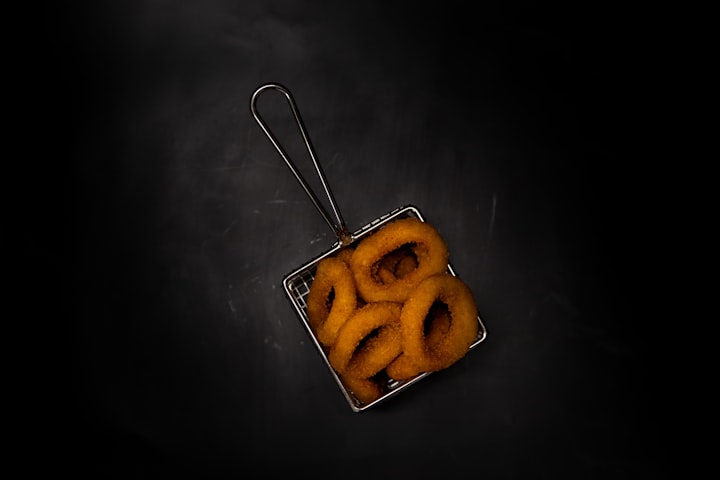
Out of the Trying Sham and into the Fryer
There are five enemies to fryer oil: Oxygen, Water, Heat, Salt and Soap. Each one can rapidly deteriorate oil quality and hence, the taste and quality of the food fried in that oil. It is an odd irony that each of these five is essential for the human body. Okay, soap is not essential, but certainly useful for maintenance. Perhaps we should avoid ingesting something that these essential things attack as a biochemical imperative.
So too should we avoid internalizing the kinds of things that eat up are eaten up by things that are good for us. If our frame of mind is fryer oil, then the metaphor suggests that it reacts to things put into it on a spectrum where metal is on one end and ice cubes on the other. For those at home, if you drop your metal tongs into the deep fryer nothing happens (unless of course you instinctively put your hand in to grab it—believe me all of us cooks have been there or close). On the other hand, if you drop even a couple ice cubes into it, stand the hell back for a second
Now consider that the tongs are, in both composition and function, hard and simple. Like small and immutable facts, they have a purpose and don’t react in any significant way the normal operation of the fryer. Useful tools, and very adept at manipulating or removing more volatile things one might add to the fryer.
By contrast, ice cubes are just solid bits of enemy no. 2 on our list of “bad for oil” insurgents. Water is malleable and adaptable and by all accounts, the best physical manifestation of change that exists. Is it not a little coincidental that the chaos required to embody change is the very thing oil (and most minds) are most reactive too?
But, in the end, the oil is only the reactive thing. Useless if it simply stands still. And useful only if you begin with the constant infusion of enemy no. 3. Heat. That ice cube, dropped in a cold fryer will melt with no complaint or combustion about it. But the next time you turn that fryer on, you’ll hear about it. It is the heat that makes the oil move. The inner fire that sustains its function. That heat comes from a deeper and larger source.
By this extended analogy, it appears that the very action of living and interacting is the precisely thing that supplies its volatility. As surely as we drop things into our minds and find them roiling and excited by them, we must acknowledge that the act of doing so muddies the oil. Water adapts to everything it touches, but oil absorbs that to which it comes in contact.
Sometimes, when we get too busy, we forget to filter and clean the oil as we are preoccupied trying to run too many things through it. As a result, in successive drops, the things we fry become darker quicker. They taste bitter or too much like the last things we put through the oil. It is therefore necessary to empty the oil, clean or replace it and scrub of the greasy carboned residues that have clung to the internal architecture that holds the oil.
I haven’t been meditating lately. A hamstring injury has made yoga and exercise a non-starter. Those were my filtering mechanisms. It is no coincidence that I have had little time to write either. Meanwhile, I have been putting too many of one thing (work) through my oil and it’s getting dark. Chalky, if not bitter. It is time to find my cone, frame and bucket. Turn down the heat and let it all settle out so the detritus of an overly taxing busy season to drain away.
Filter your oil dear humans, scrub your insides clean every so often and mind how many things you run through it. Sometimes trying harder is only that, harder. Give yourself time to stop cooking for a second and digest.
About the Creator
Andrew Rockman
I don't know that there is much I could say that wouldn't sound self-aggrandizing in a bio meant to steer you towards reading my work. I suppose, I should just thank you for offering your time and attention.





Comments
There are no comments for this story
Be the first to respond and start the conversation.